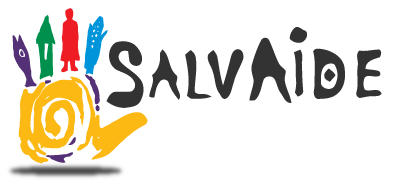Since 2005 communities and organizations grouped under the National Roundtable against Metallic Mining in El Salvador, La Mesa, have fiercely opposed attempts by foreign corporations to obtain mineral exploitation licenses to begin industrial scale gold mining.
As the national government has failed to guarantee a permanent mining ban, mining-affected regions are seeking to assert local autonomy through a process of community consultations that will gauge the desire of local communities to live in territories free of mining - the Chalatenango Free of Mining Project. Click here for more information on the project , and/or read on for details about the International Observers Delegation.
This delegation aims to bring international presence to observe community consultations in the department of Chalatenango, El Salvador. Participants in the delegation can expect to:
- Observe and verify community consultations on mining led by local organizations in the Chalatenango region of El Salvador.
- Become familiar and gain an overall understanding of the impacts of large scale mining operations in El Salvador and the different dimensions of the anti-mining struggle.
- Engage in knowledge exchange sessions with national and international environmental activists and members of local communities affected by mining.
- Increase long term solidarity with communities leading struggles against extractive industries in El Salvador and around the world.
MINING IN EL SALVADOR
There is a consensus in El Salvador that large-scale mining projects in the country are simply not viable. El Salvador is a small, densely populated country roughly the size of Lake Ontario highly vulnerable to "natural" disasters, facing a serious water resource crisis, and dealing with significant environmental degradation. Public opinion polls show that the majority of Salvadorans reject large-scale mining operations that would further tax scarce water resources, add to the contamination of the natural environment, and generate social conflict in communities already facing substantial socio-economic challenges.
Widespread opposition to mining has made it possible to halt the implementation of mineral exploitation projects so far. However, many challenges remain to ensure that the mining industry is prevented from increasing environmental vulnerability in the country. The Ministry of Economy through the Direction of Mining and Hydrocarbons maintains 29 active exploration licenses, and applications for over 60 exploration projects are currently in process. A law to prohibit mining has been introduced by civil society organizations at the Legislative Assembly but the Salvadoran government has failed to adopt it, maintaining only a de facto moratorium without legislative backing. Despite the fact that that two mining companies have sued El Salvador for over $400 million under investor "protection" rules at the ICSID, an international trade tribunal housed at the World Bank, El Salvador has continued to sign trade agreements that contain investor-state clauses that favour corporate profit over the public interest.
The failure of the government to approve a mining ban has forced civil society organizations to sustain a permanent campaign pressuring for a law that definitively prohibits large-scale metal mining. Organized under National Roundtable against Mining in El Salvador, civil society organizations have led a national campaign against mining and have supported local communities in developing creative strategies in resistance. The communities most affected by mining projects in the country are the northern farming communities of the provinces of Santa Ana, Chalatenango, Cabañas, Morazán and La Unión.
PRELIMINARY PROGRAM
Monday, September 15
AM – delegates arrive in San Salvador
PM – orientation and get to know the other delegates
Tuesday, September 16
AM - Travel to la Union and visit the San Sebastian mine. Engage with community members and learn about the environmental impact of a former mine on local living conditions.
PM - Travel to Cabañas
Wednesday, September 17
AM - Engage with local community leaders and learn about the impacts of Pacific Rim Mining
PM - Visit the town of San Isidro and talk to community members
Thursday, September 18
AM - Debriefing session, delegates coordinate for their participation in the afternoon’s event
PM – Forum on worldwide extraction issues with participation of local leaders and of delegates representing their different struggles.
Friday, September 19
Visit Asuncion Mita, Guatemala to discuss the impact of mining on Guatemalans and Salvadorans.
Saturday, September 20
Receive observation training for Sunday’s community consultation and meet with the mayor
Sunday, September 21
Participate as international observers in a community consultation process in Chalatenango.
Monday, September 22
AM - Press conference, evaluation and follow up activities.
PM – return home
Cost
In country expenses: $675* (includes three meals per day, shared accommodations, in-country private transportation, Spanish-English interpretation, and coordination)
International Flight: $700-$1000**
*Subject to change based on delegation size
**International flight is to be purchased by each delegate individually
How to Participate
Although this is a general call for participants that may come from any region and any background and that may be interested in learning about El Salvador, the focus is on those connected to related struggles internationally, such as anti-fracking struggles, Tar Sands pipeline struggles, First Nations territorial/environmental rights struggles, and others.
If you are interested in participating or have questions, please contact:
René Guerra Salazar (Canada)
Executive Director, SalvAide
T: 613-233-6215 | F: 613-233-7375
Email: This email address is being protected from spambots. You need JavaScript enabled to view it.
Skype: salvaidecanada
Facebook: SalvAide
www.salvaide.ca
Catie Johnston (United States)
U.S. El Salvador Sister Cities Co-Coordinator
This email address is being protected from spambots. You need JavaScript enabled to view it.
(503) 7596-6341
www.elsalvadorsolidarity.org
The deadline to sign up is August 15, 2014.
If you are interested in participating but are concerned about financial barriers, please do not hesitate to contact us. Some scholarships are available, especially to individuals involved in local environmental and anti-extraction industry work.




